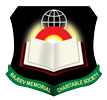Syllabus
SEMESTER- I
Hours of Instructions: 80 hours
Maximum Marks 100 (80 External+20 Internal)
Rationale:
The purpose of this course is to equip the student-teacher with the background knowledge that
one needs to develop an understanding of the school children and their socio-cultural contexts.
This background includes a critical engagement with theories, as well as psychological issues in
the world of children and adolescence. Building upon the above, the aim is to build sensitivity
towards children’s developmental needs and capabilities, within their socio-cultural context
Objectives
- To review general conceptions about childhood and adolescence (specifically with
reference to the Indian social context); develop a sensitive and critical understanding of
the different social/educational/cultural realities at the core of the exploration into
childhood and adolescence. - To acquire theoretical perspectives and develop an understanding of dimensions and
stages of human development and developmental tasks. - To enable student teachers to arrive at an understanding of how different socio-political
realities construct different childhoods, within children’s lived contexts; family, schools,
neighborhoods and community. - To analyze the major theories of intelligence as applied to a variety of educational
settings. - To develop an understanding of different theories of personality and to know the
impact/influence of socio-cultural context in shaping personality, especially with respect
to the Indian context. - To provide hands-on experiences to interact with children, and training in methods to
understand aspects of the development of children.
Mode of Transaction
- Classroom discussions for developing conceptual understanding.
- Close reading of text material/research papers
- Individual and group presentations of issues and concerns raised in assignments
- Theoretical and practical activities/exercises/investigations; analysis and interpretation
of collated observations, systematic data. - Watching movies/ videos and holding discussions
Unit: I- : Introduction to Perspectives on Development (8 Hours)
- Concept and introduction to perspectives on development (Brief introduction) –
Behaviouristic, Psychoanalytic, Cognitive, Humanistic, Neuro- Biological and Eco
psychology. - Enduring themes in the study of development: development as multidimensional and
plural; development as continuing through the life span; socio-cultural contexts
influencing development. - Principles of Growth and Development; Stages of Development (Infancy, Childhood,
Adolescence). - Gathering data about children from different contexts: naturalistic observations;
interviews; reflective journals about children; anecdotal records and narratives; clinical
methods.
Unit- II: Physical, Social and Emotional Development (20 Hours)
- Physical Development- Gross and fine motor development skills.
Role of parents and teachers in providing opportunities for physical-motor development; developmental tasks. - Psycho-social Development (Erikson); influence of early childhood experiences on later
personality. Moral Development – perspective of Kohlberg: cultural variations in moral
reasoning. - Cognitive Development – (Piaget & Bruner); Language Development- Stages— Chomsky
and Vygotsky. - Childhood and adolescence in the context of poverty, globalization and adult culture;
Commonalities and diversities within the notion of childhood and adolescence and how
multiple childhoods and adolescence are constructed with particular reference to the
Indian context. Adolescence: Aspirations challenges and problems.
UNIT III: INDIVIDUAL DIFFERENCES AMONG LEARNERS (12 hours)
- Dimensions of differences in psychological attributes—cognitive abilities,
interest, aptitude, creativity, personality, values. - Differences in learners based on predominant ‘learning styles’.
- Differences in learners based on socio-cultural contexts: Impact of home
languages of learners’ and language of instruction, impact of differential
‘cultural capital’ of learners. - Implications for catering to individual variations in view of ‘difference’ rather
than ‘deficit’ perspective.
Unit- IV: Intelligence (20 hours)
- Intelligence – Meaning and Definition
- Theories of Intelligence: Spearman, Thurston and Guilford. Gardner’s theory of
Multiple Intelligence; how Multiple Intelligences theory defines and describes
intelligence; the ways in which Multiple Intelligences theory can support
teaching and learning practices - Concept of Emotional Intelligence and Sensory attractive natural eco
intelligence. - Measurement of Intelligence- kinds of Intelligence tests.
- Exceptional Child; Educational Planning for the Individual learners; Learning
Disabilities- Types, Planning and Remedial Measures.
Unit- V: Personality (20 hours)
- Definition and basics of personality.
- Major theories on personality development: Freud, Jung, Adler, Allport, Cattell,
Carl Rogers and Eric Berne. - Factors influencing development of Personality- Genetic and Environmental.
- Adjustment and Mal-adjustment, defense mechanisms, mental health and mental
hygiene.
Suggested Tasks/Assignments
Task 1. Students collate about ten newspaper articles that involve issues of parenting and
childhood, analyze these and hold discussions.
Task 2. Case Study Approach may include observations and interview as tools to study
socio-cultural contexts, child-rearing practices, expectations from school, dreams and
fantasies of the child.
Task 3. Students watch a movie (for instance: Salaam Bombay) collectively and reflect on
the portrayal of children in the same. Discussion could be held around depiction of children
from varying backgrounds, construct of childhood etc.
References:
- Cole, M., Cole, S. R. and Lightfoot, C. (2004). The Development of Children. New York: Worth
Publishers. Chapter 1: The study of Human Development. - Newman, B. M. and Newman, P.H. (2007). Theories of Human Development. London:
Lawrence Erlbaum Associates, publishers. Chapter 1: Introduction. - Papalia, D. E. and Olds, S. W. (2003). Human Development. New York: McGraw Hill Higher
Education. - Saraswathi, T.S. (Ed.) (1999). Culture, Socialization and Human Development: Theory,
Research and Applications in India. Sage publications. - Vasanta, D. (2004). Childhood, Work and Schooling: Some Reflections. Contemporary
Education Dialogue, Vol. 2(1), 5-29. - Aggarwal. J.C (1995) Essential Educational Psychology, New Delhi : Vikas Publishing House Pvt.
Ltd. - Baron, Robert A (1999) Social Psychology, New Delhi : Prentice Hall of India
- Berne, Eric (1964) Games People Play, USA : Penguin Books.
- Berne Eric (19072) What do you say after you say Hello California : Corgi Books.
- Bhatia, H.R (1977) Textbook of Educational Psychology, New Delhi: The McMillan company
of India Ltd. - Chauhan, S.S (1988) Advanced Educational Psychology, New Delhi, Vikas Publication.
- Dandapani S. (2001) A Textbook of Educational Psychology, New Delhi: Anmol Publication
